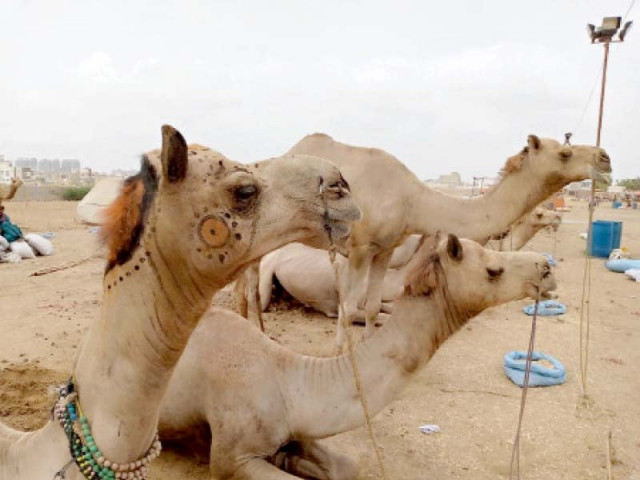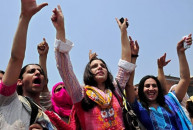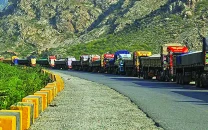High sacrificial animal prices dampen Eid spirit
Customers who can put up with the high rates are put off by the unhygienic conditions of the cattle markets

With Eid around the corner, people are slowly starting to make it towards cattle markets in Peshawar but the prices of the animals coupled with the condition of the markets is proving to be a huge deterrent for many.
The district administration of Khyber Pakhtunkhwa’s (K-P) capital has set up two cattle markets, colloquially referred to as mandis, around the Ring Road and Lala Kalay area of the city. While the two mandis were set up keeping the number of visitors in mind, the turnout has been fairly low due to the double-digit inflation and those who do visit are left disappointed by the condition of the markets.
Manzoor Ahmad, a local, who had come to the mandi near Ring Road with his cousin, said that the prices were way beyond his budget. “The starting price for larger animals is around Rs 200,000,” a shocked Ahmad informed. “Surely these prices are not only high because of the inflation, most of it has to do with animal owners trying to make a quick profit,” he added matter-of-factly.
Responding to a question about his satisfaction vis a vis the condition of the market, Ahmad said that the entire place reeked and there was barely any regard for hygiene.
Azam Khan, who was selling animals in the same market, concurred with Ahmad’s assessment about the cleanliness of the mandi. “The arrangements done by the district administration are quite poor and the heat is making it worse,” he remarked. When asked if someone from the livestock department had visited to check up on the animals, Khan said that no one had visited to vaccinate the animals yet.
When asked about the high prices he was charging for his animals, Khan put an end to the conversation by stating that the prices were not in his control.
Another seller, Hasher Khan, was also asked about the high rates. “It is true that the prices are higher compared to last year but there is little we can do,” he said. “The transport costs and the rate of animal feed have all gone up. It costs more than Rs 2,000 per day to take care of an animal. Therefore, we have little choice but to demand higher prices; after all we are here to make a profit,” he added. When asked about the condition of the mandi, Hasher Khan, like his counterpart Azam Khan, was dissatisfied with the district administration’s arrangements and informed that no one from the livestock department had visited to check up on the animals.
Dr Iftikhar Ahmad, who is associated with the provincial livestock department, when asked about the department’s disregard for the animals in the mandi, said that the assertions made against the department were not true. “Our officials are available at both mandis with medicines and veterinary doctors are on site as well to check the animals for diseases,” informed Dr Ahmad. “We have been doing our job despite the limited resources we have,” he added.
The Express Tribune also contacted officials of the district administration multiple times to get their views on the unhygienic condition of the markets and the lack of price control mechanisms but did not hear back from them.
Published in The Express Tribune, June 29th, 2023.



















COMMENTS
Comments are moderated and generally will be posted if they are on-topic and not abusive.
For more information, please see our Comments FAQ